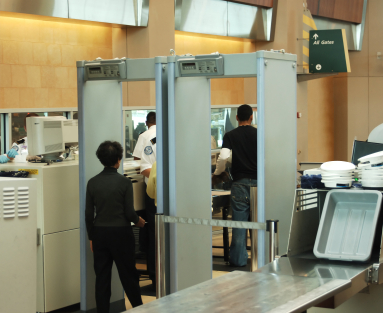
I came across a story in USA Today by Bill McGee titled, “Five most significant changes in air travel since 9/11.” Bill’s top changes: fees, shrinking industry, shrinking workforce, congestion, and security.
Although I’ve known and respected McGee for years as one of the top consumer reporters in the business, I have to disagree with at least some of his list.
First off, I can certainly agree with McGee on changing fees and security. McGee takes 9/11 as his starting date, and that day’s horrible events certainly did kick off a huge and expensive change in the industry. Although universal security screening wasn’t new—it actually started in 1973 following a series of gunpoint hijackings to Cuba—the post-9/11 system raised the security hassle to a completely new level.
And the explosive growth in fees post 9/11 has changed both the way we travel and the way we buy travel.
Congestion is a problem, too, and an increasing one in many areas. But it didn’t originate with 9/11, and the actual results—cancellations and delays—haven’t really changed a great deal in the intervening years.
As to the shrinking industry and shrinking workforce, I’d have to say that those developments have impacted the industry as a whole more than individual travelers. Sure, some former big names such as Continental, Northwest, and TWA are gone, but the flying experience hasn’t changed for most of us: We can still find flights to the places those airlines formerly served, generally at competitive fares. And as travelers, we really aren’t impacted much by shrinking workforces; we’re accustomed to more automation everywhere in our lives.
As alternatives to McGee’s two remaining points, I’d substitute these:
- High fuel prices. Fares have gone up across the board since 9/11, but the main cause has been dramatic increases in the cost of jet fuel, not reduced competition. We’ve all been impacted by that change.
- Success of non-legacy airline business models. Southwest has grown to be the largest domestic airline, in terms of passengers carried, with its own pricing and scheduling methods. And one of the biggest success stories since 9/11 has been Allegiant’s rapid growth using the model of infrequent, low-fare nonstop services from “small town USA” to blockbuster visitor destinations. JetBlue also has defied the general trend of worsening economy service to succeed, in part, by offering a measurably superior coach product.
Other candidates for top-five changes would include the growth of international alliances, the loss of almost all wide-body domestic service, and the morphing of frequent-flyer programs from loyalty instruments to cash cows, with the attendant difficulty of scoring award seats. But whether you accept Bill’s list or prefer mine, you certainly have experienced change. And, sadly, very little of it has been for the better.
You Might Also Like:
- Yes, the Euro Crisis Is Making Travel Cheaper
- Delta Tests Do-It-Yourself Boarding
- Innovative Airlines? Are They Kidding?
We hand-pick everything we recommend and select items through testing and reviews. Some products are sent to us free of charge with no incentive to offer a favorable review. We offer our unbiased opinions and do not accept compensation to review products. All items are in stock and prices are accurate at the time of publication. If you buy something through our links, we may earn a commission.
Related
Top Fares From
Today's Top Travel Deals
Brought to you by ShermansTravel
France: 8-Night Paris, Avignon & Nice...
Infinity Worldwide Vacations
 vacation
$2880+
vacation
$2880+
Poconos: 3 Nts in Garden of...
ResortsAndLodges.com
 hotel
$305+
hotel
$305+
7-Nt Canada & New England Cruise,...
Princess Cruises
 cruise
$839+
cruise
$839+



